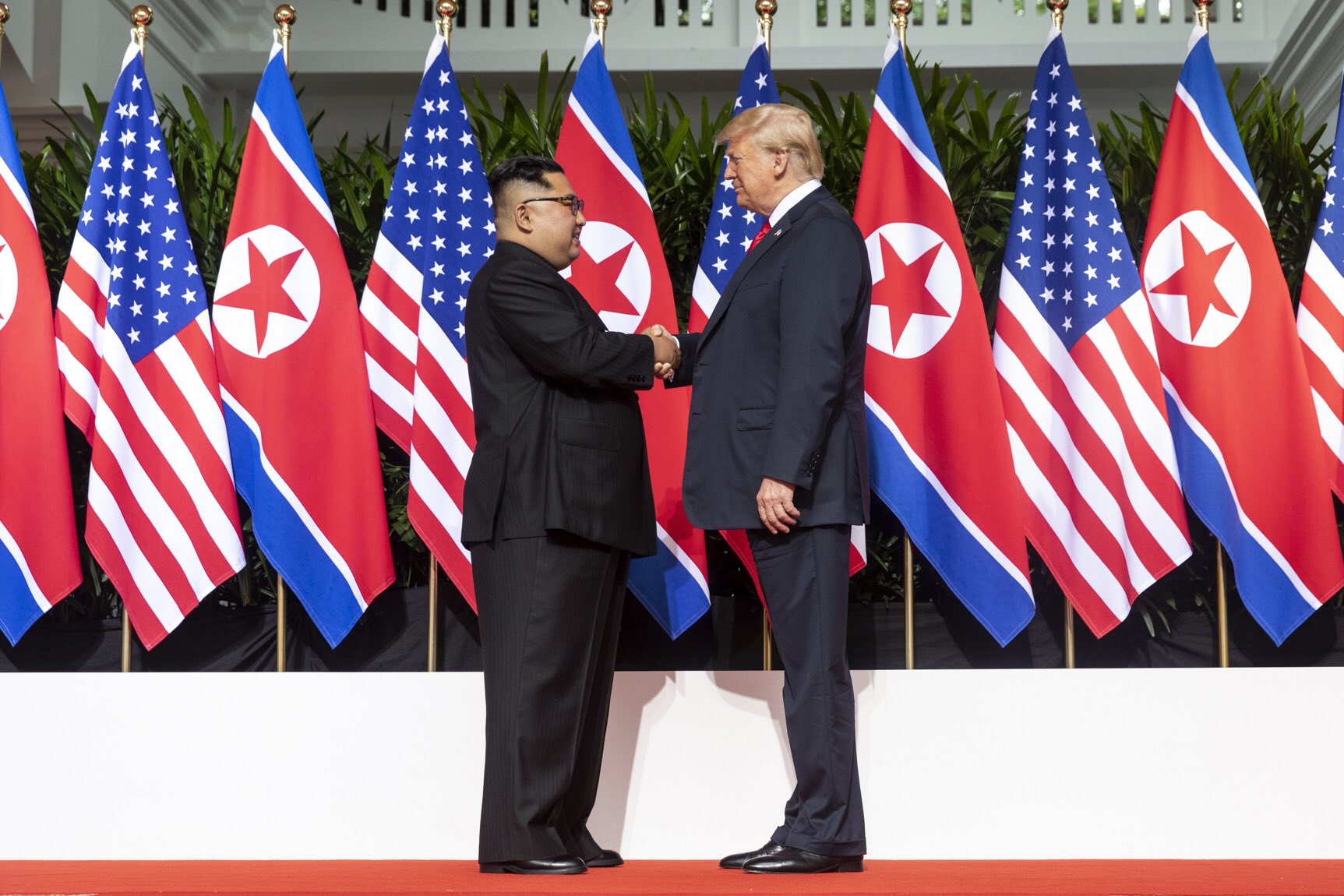Photo credit: CSIS | Center for Strategic & International Studies
Context:
Following the Trump/Kim Singapore Summit, the U.S. canceled their upcoming “war games” with South Korea. The New York Times and peace science agree that early concessions can lead to big payoffs when denuclearization is on the negotiating table.
In the News:
“The Pentagon announced on Monday that it was suspending a major military exercise with South Korea that President Trump had criticized as a waste of money. The decision to cancel — at least for now — the large-scale, long-planned Ulchi Freedom Guardian exercise set for August had been expected after Mr. Trump’s surprise announcement in Singapore that he was ending joint military exercises as an inducement for North Korea to dismantle its nuclear weapons program.”
“Current and former Pentagon officials and senior military officers have said the United States’ combat readiness would not suffer dramatically by skipping one major war game”.
“Adm. Harry B. Harris Jr., a former head of the Pentagon’s Pacific Command and the administration’s nominee to be United States ambassador to South Korea, said at his Senate confirmation hearing last week that he supported suspending the war game in August. “‘We should give exercises, major exercises, a pause to see if Kim Jong-un is in fact serious about his part of the negotiations,’ Admiral Harris said. ‘I’ve spoken in the past about the need to bring Kim Jong-un to his senses and not to his knees.’”
Insight from Peace Science:
The overwhelming military capabilities of the U.S. and the presence of U.S. troops on the Korean Peninsula are primary motivators for North Korea’s nuclear program.
By centering the U.S.’s overwhelming military capabilities and geographic position of forward deployment as motivators for North Korea’s nuclear ambitions, practitioners and policy-makers need to develop responses accordingly. For the North Korean regime, their nuclear capacity is a guarantee of survival. Much better short- and long-term actions exist. Global Zero’s Nuclear Crisis Group released recommendations, emphasizing the immediate steps of refraining from nuclear threats and provocative military action. Additional steps include: talk with North Korea without preconditions; engage with the adversary through multiple levels of diplomacy; move away from the tit-for-tat mentality and towards problem-solving approaches through recognition and respect, even in an adversarial relationship; reference and implement the difficult but successful diplomatic strategies at our disposal (e.g., the Iran Nuclear Agreement); engage conflict resolution experts in policy-making and the media; acknowledge the fears and the need for security in all parties involved; and initiate citizen-diplomacy efforts to humanize “the other.”
In light of new research insights, North Korea’s fear of overwhelming U.S. power and position on the Korean Peninsula needs to be acknowledged publicly. Talks with North Korea should include long-term visions of U.S. troop withdrawals. As we know from anthropologist David Vine, military abroad undermine national security and cause global harm. By including power and position in the narratives of diplomacy, constructive shifts in the U.S./North Korea relationship can move the entire situation away from merely “lousy” options to little diplomatic wins on all sides.
References:
- “Pentagon Suspends Major War Game With South Korea”. By Eric Schmitt for the New York Times. June 18, 2018.
- Peace Science Digest, Volume 2 Special Issue: Nuclear Weapons. “Too Close and Too Strong. U.S. Power and Proximity Contributing to North Korea’s Nuclear Ambitions”.

